Understanding The Ego's states, roles and stages in Psychology. Self-Ego Spiritual Axis: Transcending to a Higher Self.
The necessity of the psychological Ego and the dissolution of the spiritual Ego.
Welcome to my 12th post! Covering the fields of psychology, science, art, and history, I have a deep desire to understand the complexity of the human mind and behavior. My posts are free and educational, but if you consider a paid subscription, I will be more than grateful. While I have based this article mostly on my own research and observations, I have used information from a variety of sources for reference, as you will find below. However, please be kind with gaps or shortcomings. Read it at your own pace and enjoy this moment of solitude and self-reflection.
“The privilege of a lifetime is to become who you truly are.” C.G.Jung
Content references:
Eric Berne’s analysis of ego states (parent, adult, child)
Sigmund Freud’s psychoanalytic theory of personality traits (id, ego, superego)
Erik Erikson’s Ego Stages of Psychosocial Development (stages of life)
Carl Jung’s book “The Archetypes and the Collective Unconscious”
Jiddu Krishnamurti “The first and last freedom”
What exactly does EGO mean?
The term "ego" appears frequently in our daily lives, but its true meaning is ambiguous and can cause confusion. It is a term used in psychology, everyday conversations, and spiritual contexts, due to its multiple interpretations. In this article, I'll try to highlight the ego's complexities, such as its roles, states, and psycho-spiritual meaning. I'll present various aspects of the ego for a better understanding, as well as how I've found them useful in my own life.
A decade and a half ago, I discovered Eric Berne, the father of Transactional Analysis (TA) theory, and I recall that his book, "What Do You Say After Hello?" changed the way I saw myself, and I really like his perspective on ego states. His theory, which I will discuss below, has now become ingrained in my daily self-observation.
From the necessity of the psychological Ego to its transcendence to the spiritual Self.
Psychologically speaking, the Ego is an essential component of our self-identity. Eric Berne's theory is that the Ego reflects an individual's current emotional state as a result of inner dialogue between different parts of the psyche (parent, adult, child), and according to Freud, the ego is a trinity (id, ego, and superego) that are always in conflict, and the specific nature of these discrepancies determines one's thoughts, feelings, and behaviors (or personality). Erikson's theory is that the ego develops throughout our entire lives in eight stages.
On the other side of the same term, we have the spiritual Ego (a sense of "I"), which is the psycho-spiritual journey of ego dissolution as the ultimate higher step in connecting Conscious with Unconscious and experience cosmic consciousness.
As the ego fades out, we reach a transcendental stage, the next level of consciousness, in which we are free of identity, social roles, memories, future, past, labels, and wants, and just exist in the present now, in a condition of observing.
According to Freud, personality traits include Id, Ego, and Superego.
Why are these three components necessary for personality development?
ID is the most instinctual part of the psyche; it is present from birth and represents unconscious drives and desires for instant gratification. It is that part of ourselves that needs immediate attention, care, and comfort.
EGO: usually in the first few years of life, it emerges the EGO who operates on the reality principle, learning to bridge the gap between the ID’s immediate attention and demands and reality’s constraints.
SUPEREGO is the last to develop, around the age of six, and it embodies society’s internalized moral standards and values, as well as parental and social expectations. We can say that this is our moral conscience, which regulates our behavior in accordance with social norms and ethical principles.
Disagreements between these elements can influence how a person thinks, feels, and acts. A person's personality is defined by the degree to which their id wants are at conflict with one another, according to Freud. The strength of the ego is defined as its capacity to continue functioning in spite of these challenges. A person with good ego strength can effectively manage these pressures, while those with too much or too little ego strength can be unyielding or disruptive.
In our adult lives, we manifest all of those elements and try to balance them as best we can; if we pay close attention, we can notice them all.
Some people cannot simply resist the urge to eat during a meeting, require immediate comfort in a situation that requires self-control (ego), or become a walking moral compass, judging others and imposing morality at any time (superego).
A healthy personality is a balance between the id, ego, and superego. A healthy and well-adjusted personality emerges when the ego can adequately moderate between reality demands, the id, and the superego. An imbalance between these elements can lead to mental health difficulties such as anxiety and depression, according to Freud’s theory.
The Ego Psychology of Erik Erikson
Erik Erikson thought that the EGO, as proposed by Freud, was more than simply a link between the id and the superego.
Ego, in his view, was a constructive force in developing personalities and individual growth.Therefore, in his view, the major role of the ego was to form and sustain an individual's concept of self. A person with a strong sense of identity understands where he is in life, has accepted his position, and has achievable goals for change and growth.
He is unique, but he also feels like he belongs and is whole.
Those with weaker egos, who face adversity, or who have underdeveloped egos become trapped in what is known as an identity crisis.
According to Erikson, an identity crisis is characterized by a loss of direction, inefficiency, and confidence in one's own identity. He held the belief that everyone goes through an identity crisis, and that these crises may serve as catalysts for constructive transformation rather than destructive forces.
There are two potential outcomes for each of the eight stages identified by his hypothesis. A healthy personality and good social relations are the results of finishing each step, the idea claims. An unhealthy personality and sense of self can develop when one fails to adequately finish a stage, which in turn reduces one's capacity to adequately complete following stages.
However, these stages can be successfully resolved later on.
Stage 1: Trust vs. Mistrust (infancy, birth to 18 months)
Stage 2: Autonomy vs. Shame and Doubt (Toddlers aged 18 months to 3 years)
Stage 3: Initiative vs. Guilt (Preschool Years 3 to 5)
Stage 4: Industry vs. Inferiority (Middle school years 6-11)
Stage 5: Identity vs. Confusion (Teen years 12-18)
Stage 6: Intimacy vs. Isolation (Young adult years 18-40)
Stage 7: Generativity vs. Stagnation (Middle age, 40-65)
Stage 8: Integrity vs. Despair (Older adulthood, 65 to death)
What was the significance of Erikson's theory?
Because it included a person's development over their whole lifespan, not only in childhood, the notion was innovative. The importance of social ties in shaping one's character and progressing through life's phases was also highlighted.
Eric Berne's Ego states in Theory and Therapy of Transactional Analysis
Each of our three "ego states"—the building blocks of our personality according to TA (transactional analysis)—has its own distinct set of rules for how we think, feel, and behave in response to the world around us. Transactional analysis theory is based on the ego states of the parent (nurturing/critical), adult, and child (adaptive/ free), as well as their interactions.
This therapy method was the most effective for me, and it has helped me communicate better, regulate my emotions, and immediately recognize how to place myself in interactions while also being a good observer of the other person's EGO state.
One way to comprehend and identify each EGO condition is by a script analysis.
The purpose of script analysis is to reveal how our formative experiences shape our unconscious assumptions about who we are, how others work, and the world around us. Looking at the positive and negative reinforcements we received as children, life messages, and whether we are modeling or copying how we observed our parents and authority figures, is a part of it.
It also examines subtle messages, or injunctions, such as being told to be quiet when speaking to friends, which can imprint the belief that no one wants to hear us. Overall, script analysis helps us understand our internal and external environments and how they impact our interactions.
As I will write in more depth about this kind of therapy on my Therapeutic Toolbox: Interviews & Insights page, I’ll leave only the basic structure of this theory and how it works.
Complementary transactions involve communication where the sender's and receiver's ego states are parallel, resulting in a balanced response. This type of communication is considered the best when it occurs from an adult-to-adult state, as it is respectful and reduces conflicts. However, it may not be the best form of interaction in a workplace environment between two adults. For example, in a romantic relationship, if one is always in a state of a nurturing parent it may provide support and calm, but this may cause strain and drain over time. So, if we observe ourselves and others in interactions, we can identify the most compatible communication at the given time.
Crossed transactions happen when the ego states of two persons in an encounter do not match, resulting in contradicting answers. To continue communicating, one or both sides must change their ego states. A client, for example, may be speaking from their critical parent state with the intention of reacting from their child's ego state, such as apologizing, asking not to report, and doing whatever to enhance their authority in the situation. This might lead to misunderstandings and perhaps legal problems. In such instances, both parties must adjust their ego states for productive communication.
If you react in your adult state, the sender is more likely to return to their adult state to compensate for the gap in uncomplimentary ego states, resulting in exchanges from adult to adult that are healthier and more polite.
This theory necessitates a high level of self-awareness and the ability to examine and notice one's own behavior, emotions, and thought patterns; some people may lack the willingness and motivation to accept responsibility for their problems and behaviors.
Spirituality: The ego as a false identity
Now let's rethink what we mean when we talk about the EGO and how it's defined as an aspect of our identity that we have to keep in check if we want to transcend to a higher self.
When we engage on a spiritual journey, we challenge our ego, which is the element of ourselves that we use to identify and present ourselves to the world. When asked who we are, we may identify with our occupations, status (spouse or wife), money, company, or lifestyle, and present ourselves as a result; this is the EGO. The ego in this context is considered a false identity that we have created for ourselves, as it is not derived from our true self deep within, but rather from a collection of our beliefs about ourselves. This includes beliefs about our personalities, talents, preferences, skills, upbringing, nationality, and anything else we think defines us. Although the characteristics may be true (for example, we may have the nationality or skills that we believe we have), they do not necessarily define who we are.
What does it mean when spiritual leaders tell us that keeping ourselves busy and of focus on our EGO prevents us from having a real life experience?
By deceiving ourselves about our value, abilities, and achievements and layering on mask after mask, we contribute to the false identity, and we proudly conceal, further burying our true selves.
The ego is neither negative nor positive, but rather a sense of self that allows us to operate in the world. It is problematic when it takes control over us and its actions or interpretations become damaging to us and others by being egocentric and self-absorbed by our own importance.
When we have thoughts about ourselves that we consistently agree with and reinforce, they become a part of our self-image.
As J.Krishnamurti said:
”We don’t see because we have opinions about what we see”
What we seek to learn together is self-knowledge, but not that knowledge that philosophers and psychoanalysts talk about, because then we would learn about ourselves through the conceptions of others, or what we want is to know what we are in reality. Understanding that we cannot depend on any external authority to cause a total internal revolution, we face an even greater weight and remove our own internal authority, which results from our little private experiences as well as from the accumulation of our opinions, our knowledge, our ideas, and our ideals.
The distinction between awareness and introspection.
Awareness is the process of breaking free from habitual self-actions and becoming aware of one's own thoughts, actions, and reactions. It requires tenderness, intense focus, and openness to all thoughts, feelings, moods, and suppressions. In contrast, introspection causes conflict and self-enclosure, which leads to discomfort and anxiety and is a necessary step in becoming aware. Introspection causes conflict, and when we learn about ourselves, we do so through internal conflict, which is why working on yourself can be exhausting or more difficult than you expected. Some people believe that psychological therapy will bring them immediate peace, but the reality is that conflict will create space before peace can be established, whereas awareness is a liberation process that both delivers and gives freedom.
“To be free from any authority, ours or someone else's, means dying to everything that is old, so that the mind is always fresh, always young, innocent, and full of vigor and passion. Only in this state can we observe and learn. And for this, a great deal of lucidity is needed. We must be fully aware of what is happening inside us without trying to correct or appreciate it as it should or should not be, because immediately when we intervene, we establish another authority, another censor.”
Conscious and Unconscious
The ego is also a part of the mind that mediates between the conscious and unconscious, responsible for reality testing and a sense of personal identity.
It is not fixed but a collection of ideas and interpretations about who we are. Understanding that our identity is not fixed but a collection of ideas can help us think critically about our ego's messages, especially when our instinct is to preserve it.
As Sadhguru explains with his distinct sense of humor:
“Ego” is not something that you got because you did something well or because you became rich or beautiful or anything else. When you started kicking in your mother’s womb, the ego was born. The very first mistake of getting identified with your physical body means the ego was born. It is a defense mechanism. You got identified with this little body. This little organism has to survive in this vast existence of which you have no perception to even know where it begins and where it ends. Just to survive, you have to project yourself like a big man. So the ego is born. It is a false reality you created just for the sake of survival.
So what is ego? It is like your shadow. The moment you have a physical body, you have a shadow. The shadow itself is neither good nor bad. If the sun is up there, you have a little shadow. If the sun is down there, you have a mile-long shadow. Whichever way the outside situation demands, that is the kind of shadow you have. That is also the kind of ego you should have.
Eckhart Tolle's central idea is that we bring all our pain onto ourselves when we let ourselves be identified with our ego.
To rephrase, you are not your wants, your envy, and your despair. You are not the longing, jealousy, or melancholy but rather the form that interprets it as something that the mind and body are going through.
Recognizing war and ego as a collective dysfunction or the "insanity of the human mind" can help you no longer misperceive it as someone's identity. There's nothing to take personally, and it's ego that's the issue. Instead, focus on recognizing and addressing the underlying issues rather than blaming others.
“The density of the ego depends on the degree to which you—the consciousness—are identified with your mind, with thinking. Thinking is no more than a tiny aspect of the totality of consciousness, the totality of who you are.”
Carl Jung viewed the ego as the center of consciousness, containing our awareness of our personal identity and organizing our thoughts, intuitions, feelings, and sensations.
It bears personality and connects the inner and outer worlds.
People's attitudes determine their relationship with these worlds, with extraverted individuals oriented towards the outer world and introverted individuals primarily focusing on the inner world.
Jung identified four functions: thinking, feeling, sensation, and intuition. Each attitude operates in relation to the person's introversion or extraversion, and in conjunction with other less dominant functions, providing various theoretical possibilities.
The ego, a component of the Self, emerges during early development and plays an important role in survival and making life meaningful. It is an expression of the Self, but not the same as it.
Jung compared consciousness to the eye, where only a limited number of things can be held at a time. This selective activity demands direction, causing conscious orientation to be one-sided.
The excluded contents sink into the unconscious, creating tension and eventually breaking through in dreams or images. The unconscious complex serves as a balancing or supplementing of the conscious orientation, ensuring a balanced and meaningful life.
”Everything of which I know, but of which I am not at the moment thinking; everything of which I was once conscious but have now forgotten; everything perceived by my senses, but not noted by my conscious mind; everything which, involuntarily and without paying attention to it, I feel, think, remember, want, and do; all the future things which are taking shape in me and will sometime come to consciousness; all this is the content of the unconscious.
Besides these we must include all more or less intentional repressions of painful thought and feelings. I call the sum of these contents the “personal unconscious””
Jung's theory focuses on the Self, aiming for wholeness and individuation to develop an organism's full potential. The theory is organized from the Self's perspective, not from the ego's perspective, as seen in early Freudian theory.
The ego and other structures develop from the Self, which exists from the beginning of life. The Self is rooted in biology but has access to a vast range of experiences, including cultural and religious realms.
"No one can build you the bridge on which you and only you must cross the river of life." Friedrich Nietzsche
This post has no conclusion; it is simply a brief explanation of the ego in various contexts, all of which I have studied, am familiar with, and enjoy sharing with the world, in the hopes of providing some clarity and value to someone out there on a soul-searching journey. I spent many years searching for meanings of all kinds and plunging deeply into introspection, but I have finally found peace in my existence and discovered parts of myself while writing down my knowledge and heartwarming ideas about how beautiful and simple life can and will be.
"To be nobody-but-yourself — in a world which is doing its best, night and day, to make you everybody else — means to fight the hardest battle which any human being can fight; and never stop fighting." Laura Riding's 1930 letter to an 8-year-old girl on being oneself.
Maria Popova:
“We never see the world exactly as it is. We see it as we hope it will be or we fear it might be. And we spend our lives going through modified stages of grief about that realization. We deny it, and then we argue with it, and we despair over it. But eventually — and this is my belief — that we come to see it, not as despairing, but as vitalizing. We never see the world exactly as it is because we are how the world is.”
Understanding and exploring our ego is essential for personal development, emotional regulation, and healthy relationships. By becoming aware of our ego-driven thoughts and behaviors, we gain insight into ourselves, improve our emotional regulation, and foster empathy in relationships. Furthermore, exploring the ego promotes personal development, spiritual growth, and a stronger connection to our true essence. Overall, understanding our ego allows us to live more consciously, authentically, and compassionately, resulting in a more fulfilling existence.

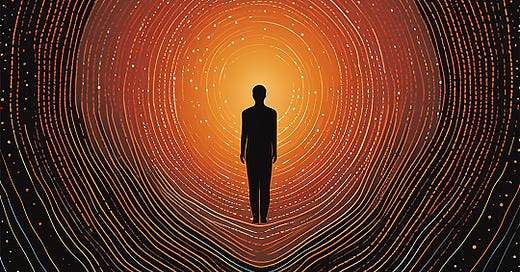



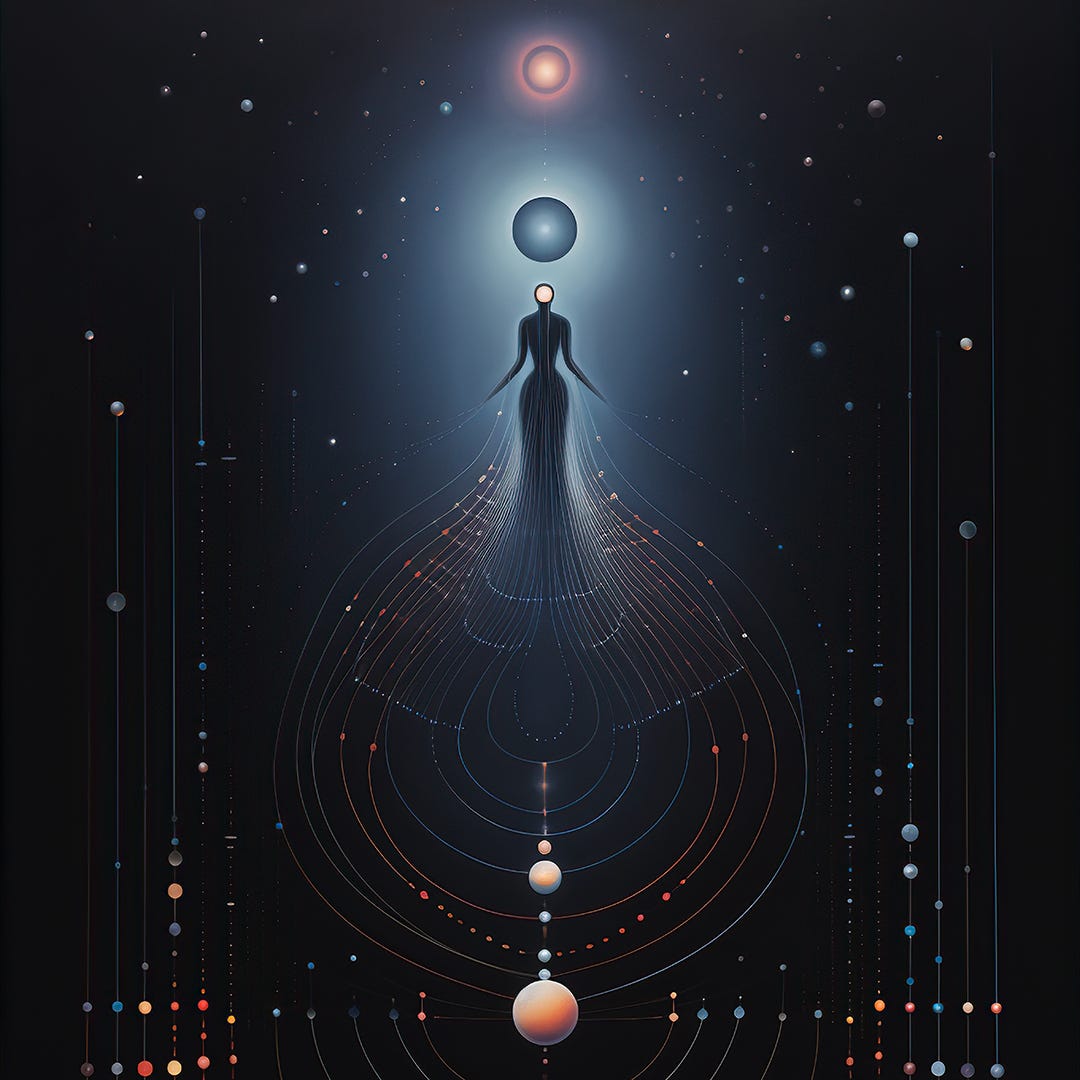



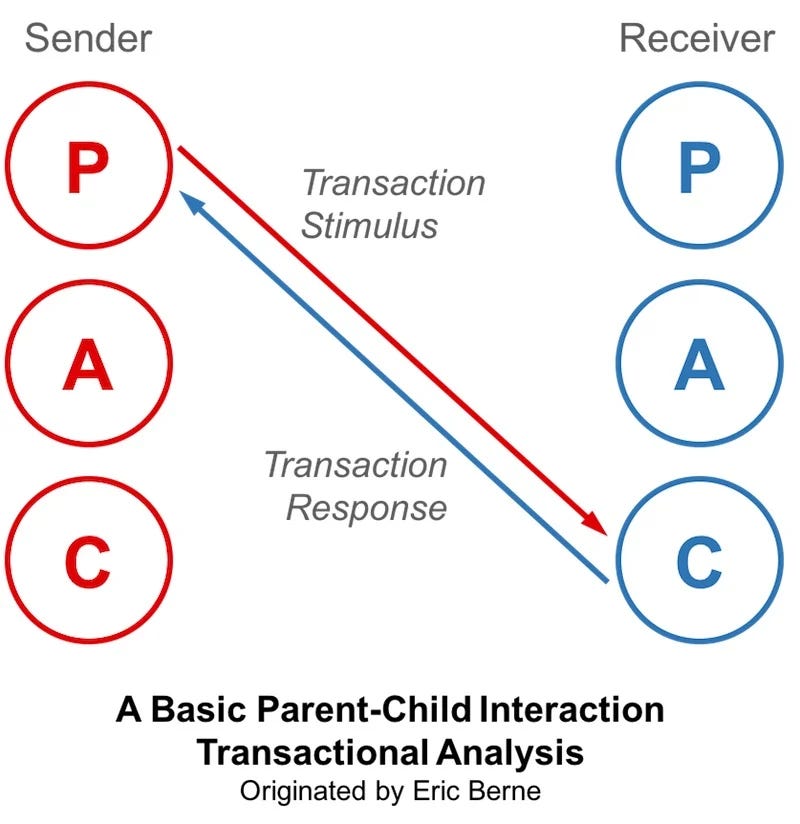
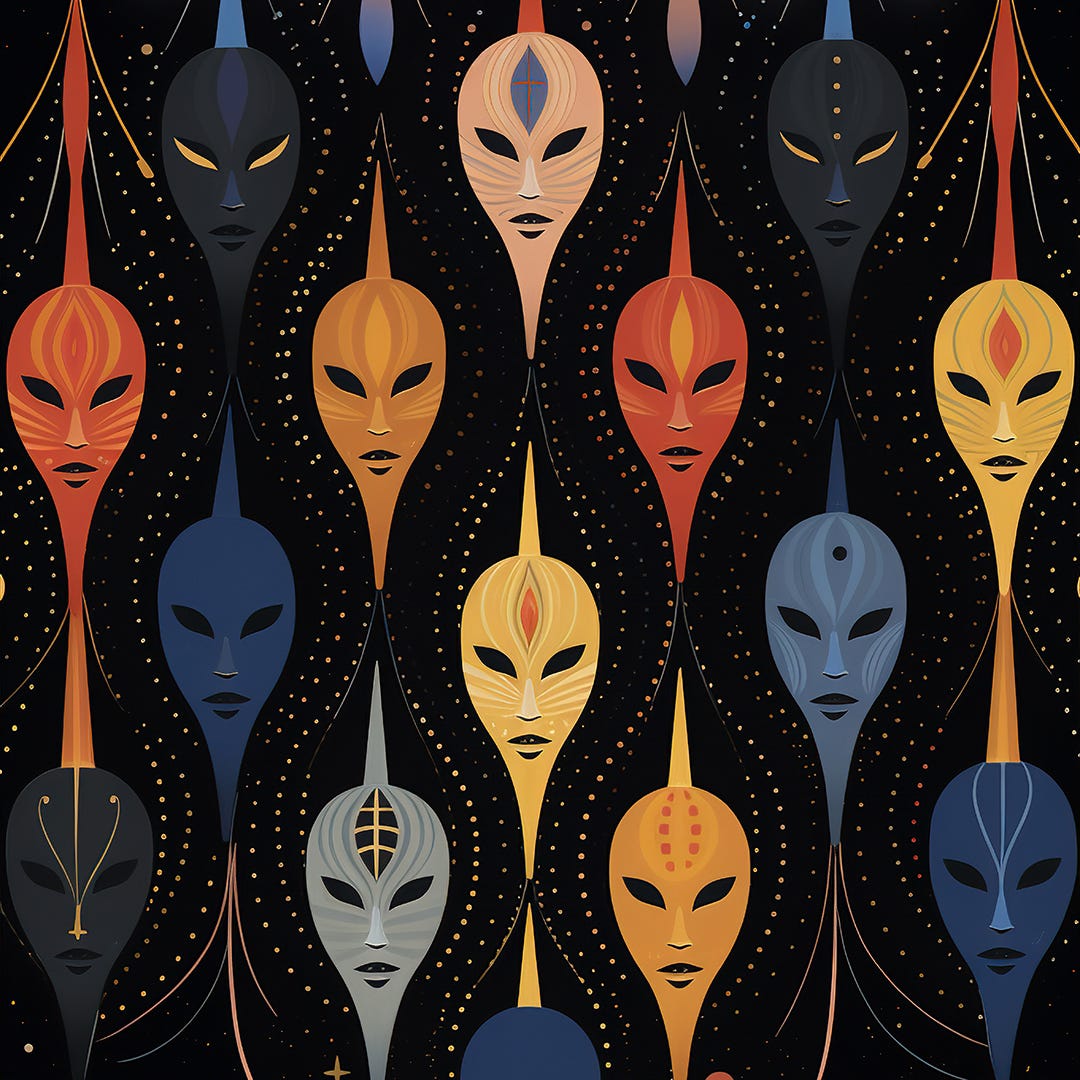



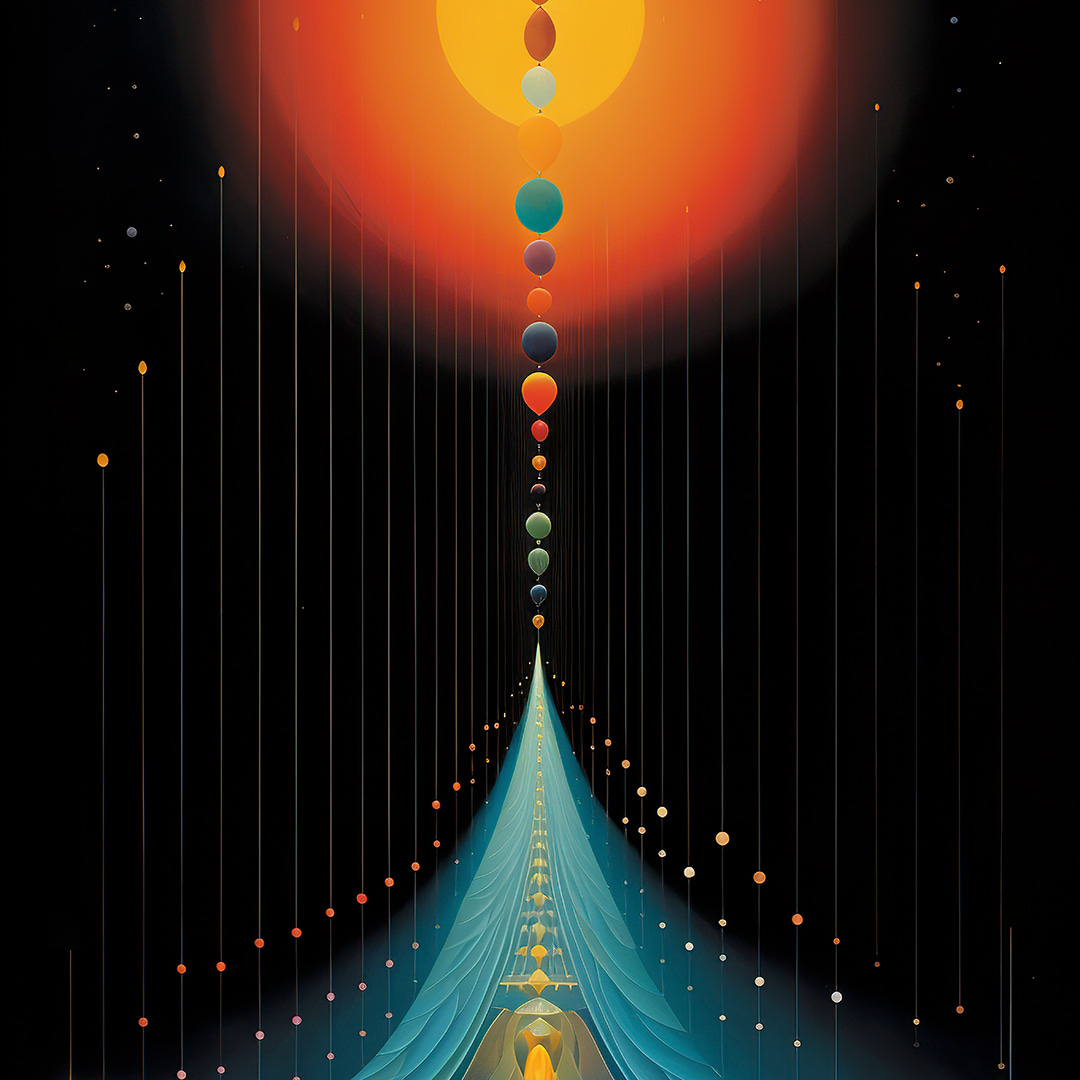

I haven't seen the ego and all it's meaning described and explained as well or as in depth as you have here. Thank you thank you! Will be referencing this for weeks to come!
Thank you for such an extensive overview and summaries of different perspectives. 💜 🙏